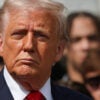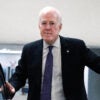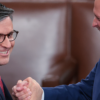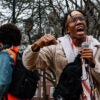Facebook’s much-vaunted initial public offering is on the horizon and promises to shower a few lucky individuals with millions if not billions of dollars. One of those Facebookers is the company’s billionaire co-founder Eduardo Saverin, who renounced his U.S. citizenship ahead of the IPO, potentially reducing his tax burden.
Saverin, who was born in Brazil and is a resident of Singapore, holds a 4 percent stake in the company, which could be worth about $3.84 billion. Bloomberg reports that though Saverin won’t escape all U.S. taxes—he will still owe what is effectively an exit tax on the capital gains from Facebook’s stock holdings, even if it doesn’t sell the shares—he will enjoy the benefits of Singapore’s tax code. Namely, it doesn’t have a capital gains tax.
The Daily Signal depends on the support of readers like you. Donate now
While it’s unclear how much tax savings Saverin will realize from his decision to renounce his U.S. citizenship, his move highlights a very real problem for the United States. Bloomberg reports that a record 1,780 individuals gave up their U.S. passports last year, compared with 235 in 2008. The Cato Institute’s Dan Mitchell says this is part of a pattern that’s even being reflected across state lines here at home.
There is a wealth of data on successful people leaving jurisdictions such as California and New York that have confiscatory tax systems.
And there’s also lots of evidence of taxpayers escaping countries controlled by politicians who get too greedy. Mr. Saverin is just the latest example. And I suspect, based on the overseas Americans I meet, that there are several people who quietly go “off the grid” for every person who officially expatriates.
The statists say these people are “tax traitors” and “economic Benedict Arnolds,” but those views are based on a quasi-totalitarian ideology that assumes government has some sort of permanent claim on people’s economic output.
The Heritage Foundation’s 2012 Index of Economic Freedom shows that though the United States is known as the “Land of the Free,” America’s excessive tax burden makes it less economically free than other countries, putting it at a competitive disadvantage and convincing U.S. citizens to plant their feet abroad.
One of the factors in weighing economic freedom is “fiscal freedom,” measured by analyzing the top tax rate on individual income, on corporate income, and on total tax burden as a percentage of GDP. In the United States, the top individual and corporate tax rates remain at 35 percent, on top of a capital gains tax and excise taxes, with the overall tax burden amounting to 24 percent of total domestic income. Compare that to Singapore, where the top income tax rate is 20 percent, the top corporate tax rate is 17 percent, and the overall tax burden is a mere 14 percent, and you can see why Saverin would be happier to lay down his financial roots in that country.
America’s tax burden is set to get even worse beginning on January 1, 2013, when “Taxmageddon”—the largest tax hike in history—will clobber American taxpayers. Combine that with America’s growing debt and regulation, and you have a country where economic freedom is dwindling, especially when compared to countries like Singapore and Hong Kong.
A billionaire like Saverin can afford to flee for greener pastures, but the rest of America isn’t so lucky.






























